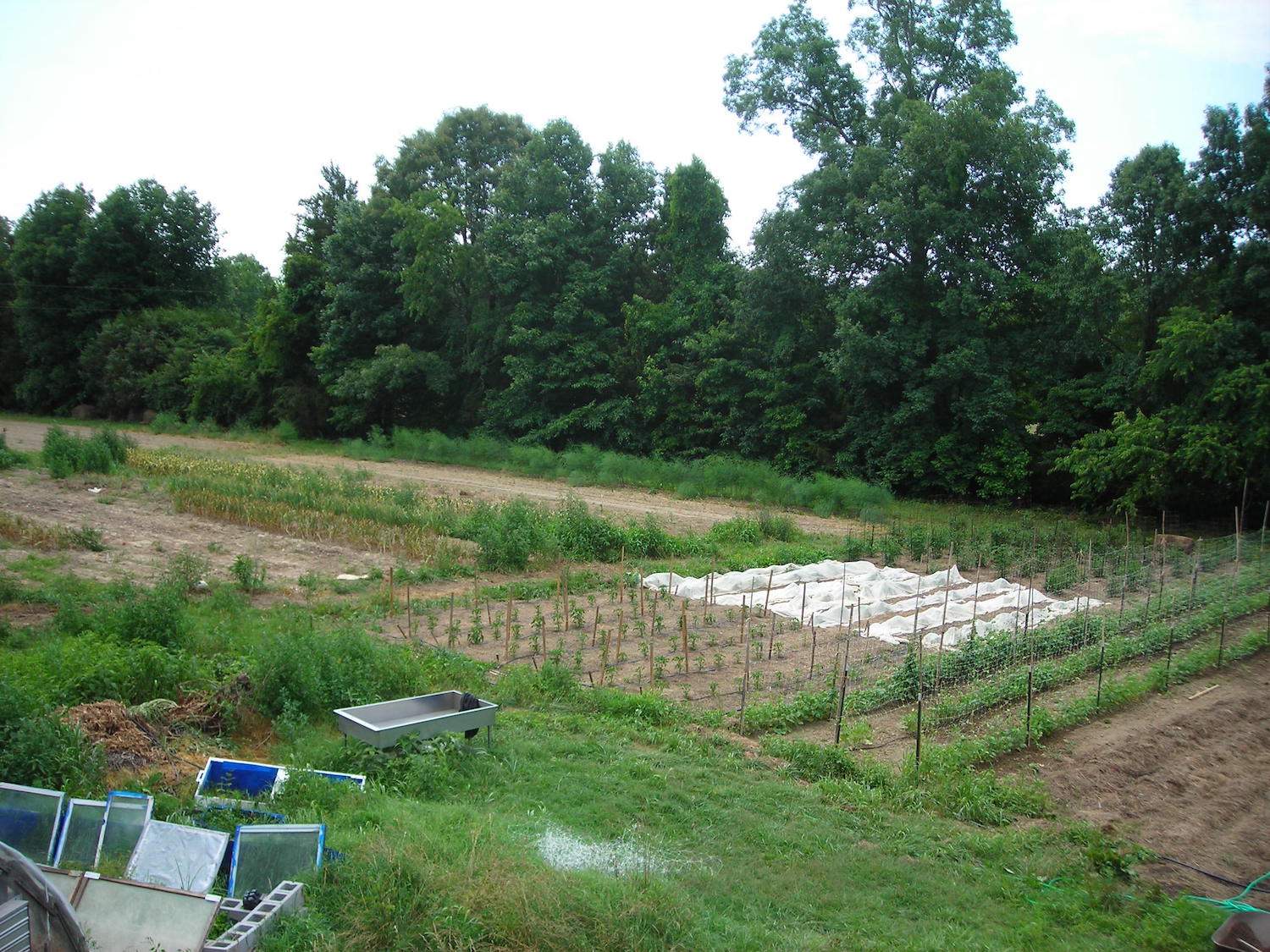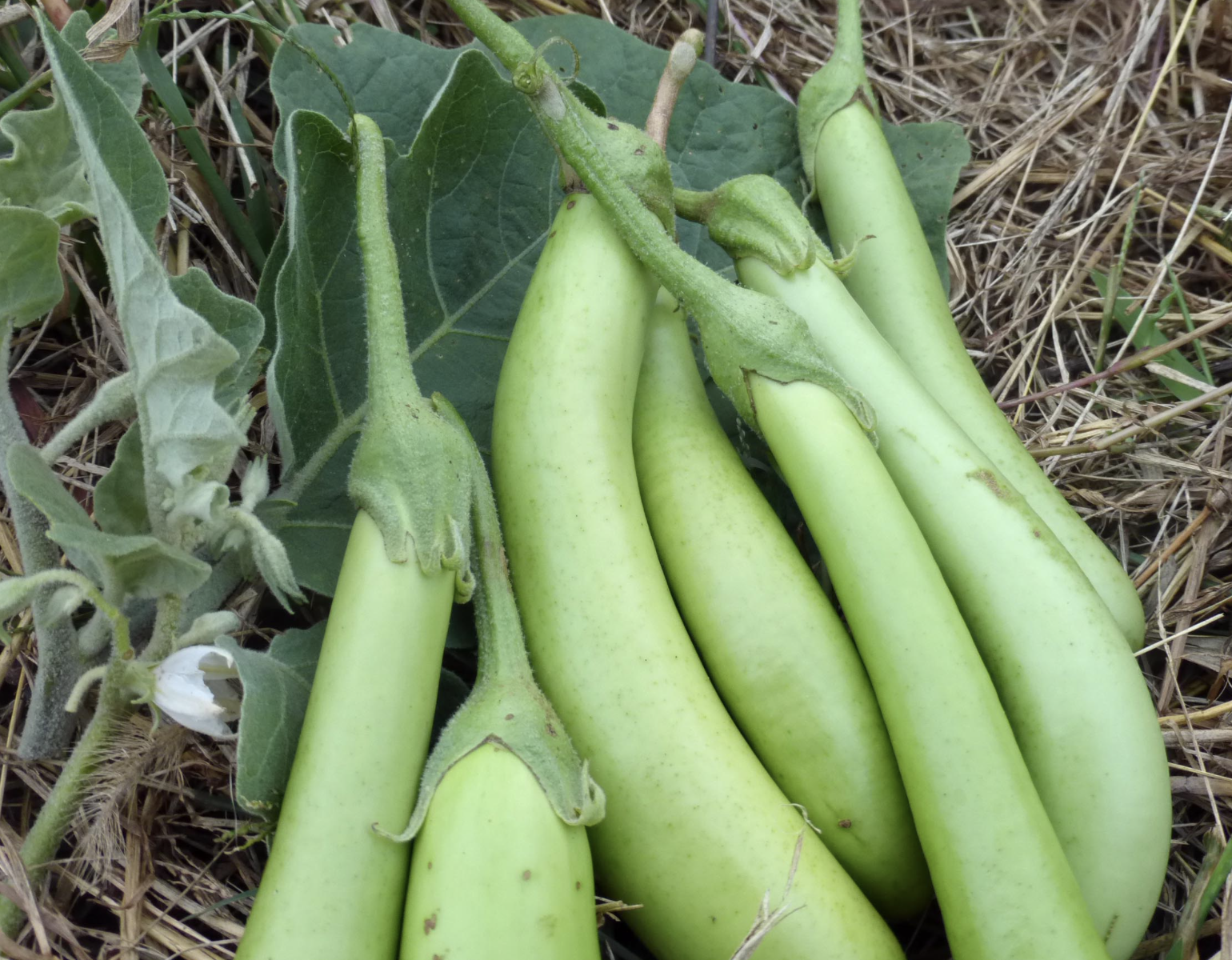
[ad_1]
Homegrown eggplants are tender, delicate, and excellent for summer season grilling or basic recipes like eggplant parmesan, baba ganoush, and ratatouille. These heat-loving greens could be difficult to develop, although. After years of rising eggplants, we’ve compiled some ideas for fulfillment.
The Fundamentals
Begin your eggplants indoors 8 to 10 weeks earlier than your final frost, and harden them off outside for 1 to 2 weeks earlier than transplanting. Plant your eggplants in a sunny location with well-drained soil. Area them equidistant 24 inches aside or 20 inches aside in rows 30 inches aside.
Suggestions for Success
Eggplants could be difficult to develop, however the following tips will guarantee success.
Keep away from setting crops out too early.
Eggplant seedlings are prone to chilly temperatures. Trying to harden them off too early can shock your crops and stunt their development. If a late chilly snap happens, convey them outside throughout the day, however preserve bringing them in at night time till the temperature warms.

Preserve pests off your seedlings.
Younger eggplants are extremely prone to pest stress, particularly flea beetles. There are a number of completely different strategies you need to use to guard your seedlings.
- Harden seedlings off on a desk not less than 3 ft tall. Few points happen at this peak.
- Use natural management strategies like pyrethrum or diatomaceous earth.
- Lower the bottoms off 1-gallon milk jugs and place them over the seedlings with the lids off.
- Use row cowl to guard younger eggplants and take away it simply earlier than flowering to permit pollinators to achieve the blooms.
Older eggplants require much less safety. They’ll nonetheless produce properly even with fairly a little bit of flea beetle harm on their leaves.
Feed your eggplants.
Eggplants get pleasure from fertile soil that’s wealthy in natural matter. Including a number of inches of completed compost to your mattress earlier than planting can encourage good manufacturing. It’s also possible to combine a little bit of compost into your transplant holes.
If you happen to’re rising eggplants in containers, giving them a bit of additional diet is a good suggestion, particularly after they’re flowering and setting fruit. You should use an natural vegetable fertilizer or make your personal compost tea.
Present assist for eggplants.
Eggplants loaded with fruit are vulnerable to lodging or falling over. Arrange stakes, tomato cages, or different helps early to make sure your crops don’t lodge later. Securing the crops whereas they’re nonetheless small will forestall you from damaging them or knocking off fruit later.
Preserve the soil moist.
Eggplants produce greatest after they have moist soil however not soggy soil. Examine the soil and water frequently to maintain it persistently moist for greatest manufacturing.
 Apply mulch.
Apply mulch.
Mulching round your crops will help suppress weeds, preserve the soil moist, and add further natural matter. We wish to mulch round eggplants with an natural mulch like straw or outdated leaves.
Harvest your eggplants frequently.
Common harvesting will encourage your eggplants to maintain producing. We discover that the small fruits have one of the best consuming high quality. Eggplants are ripe when the pores and skin seems shiny, and the fruit is resilient to thumb stress. When your eggplants mature, harvest them by clipping the stem with scissors or backyard snips.
Rotate your eggplants and different crops.
Eggplants could be affected by most of the identical illnesses, like verticillium wilt, that have an effect on different nightshades, equivalent to tomatoes, peppers, and potatoes. Rotate your crops yearly and keep away from rising any nightshades in the identical plot for not less than two years.
Eggplants are tasty, stunning additions to the summer season backyard. They are often enjoyable to develop, too! Even inexperienced persons can succeed with eggplants in the event you comply with a number of easy ideas.
[ad_2]